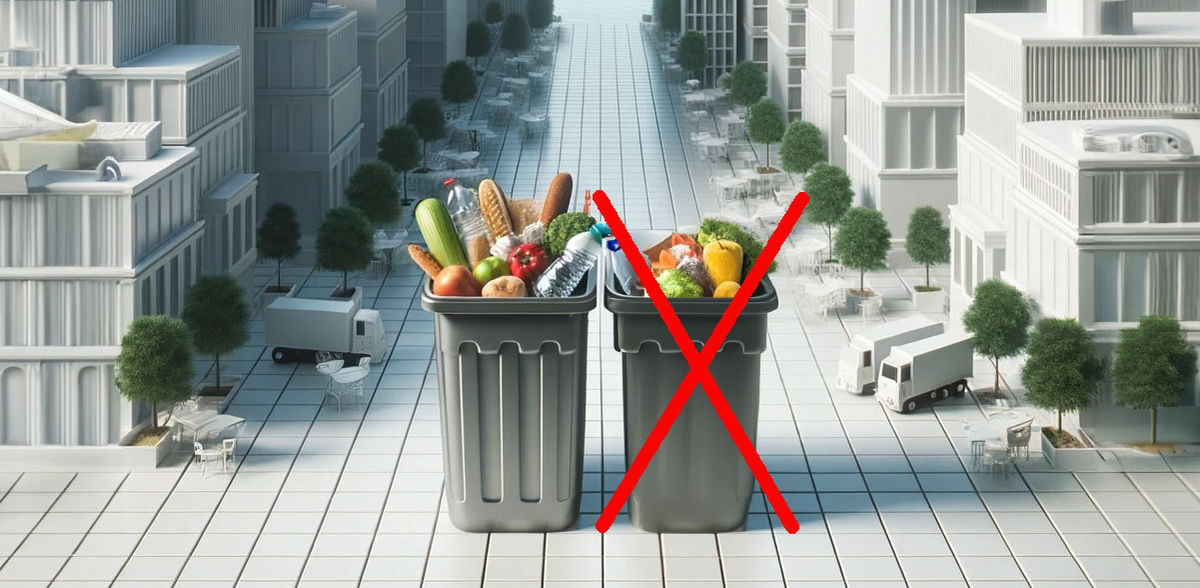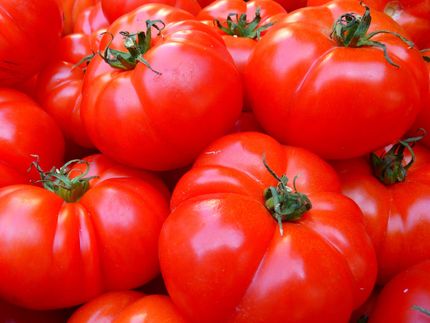Germany: Kohlrabi and vehicle tax: ideas for less food waste
Advertisement
In the fight against food waste, experts are proposing practical changes to ensure that significantly fewer products end up in the trash unnecessarily. A high consumption of precious resources is connected with every food not used for nutrition, it says in a statement of the consumer center federal federation for a Bundestag hearing on this Monday. In concrete terms, the association suggests changes to vegetables and fruit in supermarkets. Radishes and kohlrabi, for example, should be sold without decorative foliage, which causes moisture to evaporate more quickly and can thus lead to premature spoilage.
Some fruits and vegetables are often sold at prices per piece rather than by weight, consumer advocates explain. But what doesn't meet the minimum size or weight may then not make it into stores. Retailers should therefore forgo their own requirements for size, uniformity and appearance. "Natural-sized grading should become the norm in supermarkets, too." Vegetables of different sizes should generally be sold by weight and not at prices per piece. This would also allow customers to shop more in line with their needs.
The Federal Association of German Food Retailers points out the pitfalls of selling to organizations such as food banks. In the case of loose fruit and vegetables, information on origin, commercial class and means of surface treatment would have to be provided on a product-by-product basis, it says in its statement for the hearing in Parliament's Nutrition Committee. This poses a major hurdle for donations, it said, because surplus fruits and vegetables come from different batches at the end of the day and the info must be matched by hand.
For products that have recently passed their best-before date, he said, there is currently no legally secure way to give them away. A yogurt, which is usually edible even days after the expired date, cannot be donated because it would have to be checked beforehand whether it is marketable and safe. This could only be done by opening and testing, which is obviously out of the question, the association explains. Therefore, a disclaimer would be required for the donors when giving it to charitable organizations and institutions.
The umbrella organization Tafel Germany urges in its statement better basic conditions of the activities locally. With the 970 Tafeln with approximately four vehicles per location an exemption from the vehicle tax would bring a country wide saving of 1.5 million euro. In addition, the association points out that from July 1, 2024, even smaller vans weighing 3.5 tons or more will have to pay truck tolls on highways and federal roads. The costs would be an additional burden for food banks and other charitable organizations.
Every year, eleven million tons of food end up in the trash in Germany, according to data for 2020 from the Federal Statistical Office. Of this, 7 percent, or 762,000 tons, was accounted for by retailers. The majority, 59 percent, was generated in private households. A further 17 percent was generated in restaurants and canteens, 15 percent in processing and 2 percent in agriculture.
The German government's declared goal is to halve food waste by 2030. To this end, the previous government had initiated a strategy aimed at voluntary regulations for the various stages of the food chain from harvest to plate. Target agreements have been concluded for out-of-home catering, supermarkets and wholesalers. Agriculture Minister Cem Özdemir calls for a more conscious approach to food. Buying too much, cooking too much or loading too much onto the plate - everyone could contribute to stopping the enormous waste, the Green politician said recently on the occasion of an action week./sam/DP/he
Note: This article has been translated using a computer system without human intervention. LUMITOS offers these automatic translations to present a wider range of current news. Since this article has been translated with automatic translation, it is possible that it contains errors in vocabulary, syntax or grammar. The original article in German can be found here.





























































